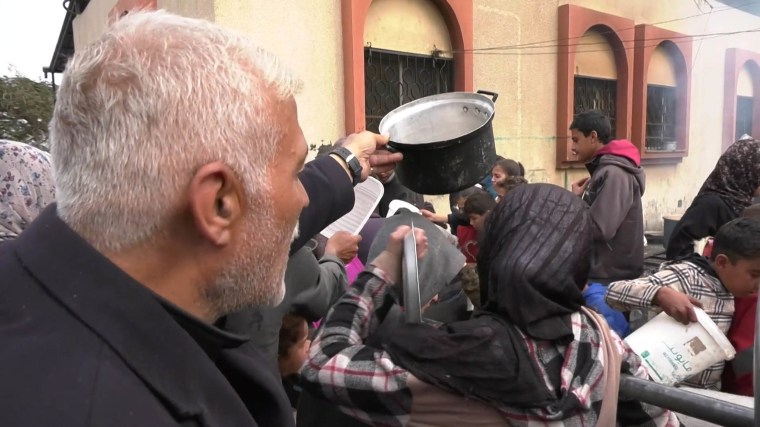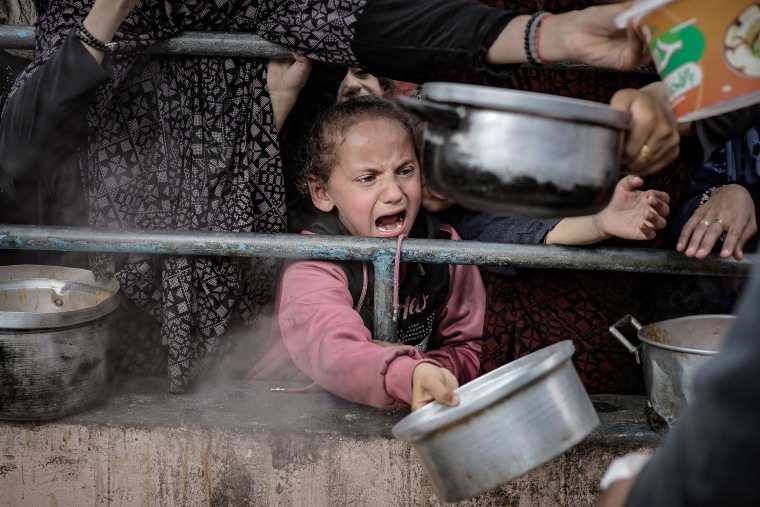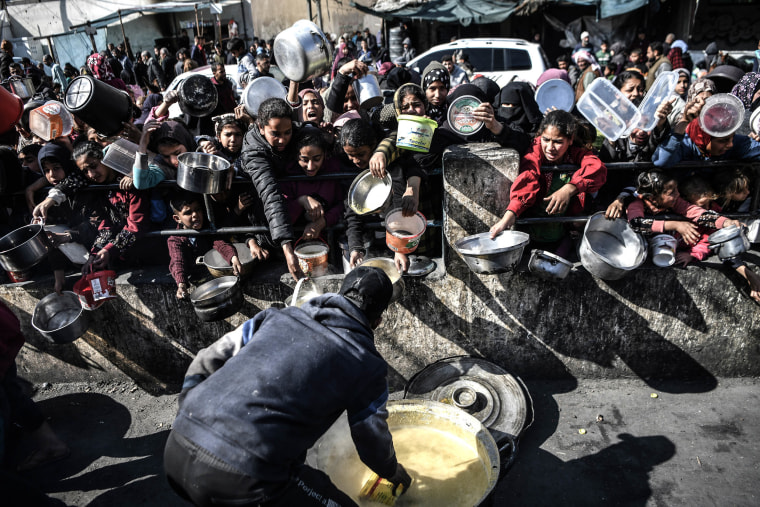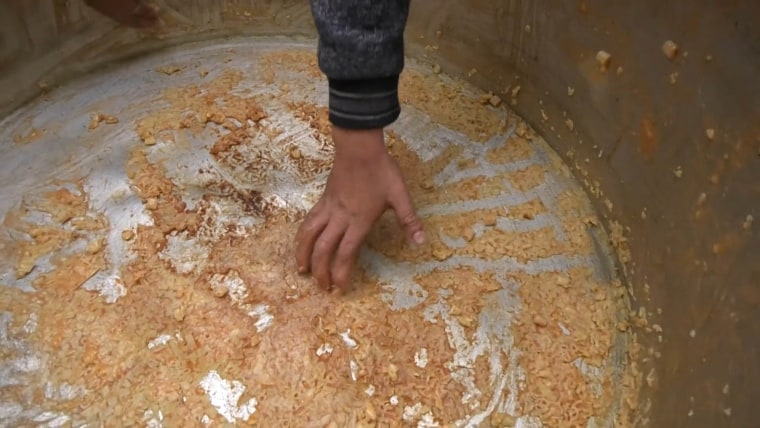Fears of famine grow in Gaza as aid agencies suspend deliveries
JERUSALEM — As crowds of hungry people crowded around a food distribution point in Gaza’s southernmost city of Rafah, Magdy Hussein waited patiently in line, a dignified figure amid the chaos.
His wait proved in vain — the food ran out before he reached the front.
“For the love of God, every time we come, we leave with nothing,” Hussein said to the young men dishing out the soup, as he was filmed by an NBC News crew last week. “Please, every time I tell you, I have 25 people at home.”
“What kind of life is this?” Hussein, who is in his 60s, wondered aloud to no one in particular.

Hussein’s situation underscores a bleak reality for many in Gaza, as the Israeli military’s ground invasion and aerial bombardment continues. A dire food and water shortage is putting many at risk of infection and death, according to aid groups that have repeatedly stressed difficulties in delivering aid due to the intensity of hostilities.
Some days, no food enters the war-ravaged enclave, Matthew Hollingworth, the World Food Programme’s regional director, said in an interview from his office in Rafah, where more than 1 million people have sought shelter since Israel launched its ground invasion on the strip.
“It’s not a logistics problem. It’s not a logistics crisis,” Hollingworth said, adding that the food was available but that getting it into the enclave was proving nigh impossible. “We need the access,” he said.
“The level of desperation, of hopelessness, of despair is really shocking,” he added. “People are so scared because they don’t know where their next meal is coming from and they don’t know where they’re going to be sleeping tonight.”

Even if aid trucks are able to enter the enclave, Hollingworth said, Israeli bombardment is preventing the aid from getting to those most in need, as well as “banditry, fighting and lawlessness” among the desperate population. Israel says it does not restrict the import of humanitarian supplies.
On Tuesday, the World Food Programme said it was suspending deliveries to northern Gaza until conditions allowed for safe distribution. A combination of Israel bombing, violence against truck drivers and looting of vehicles had led it to the decision, the agency said in a statement.
This came a day after a report by the United Nations’ children’s agency on Monday said that 1 in 6 children are acutely malnourished in Gaza.
The report by the Global Nutrition Cluster, an aid partnership led by UNICEF, said more than 90% of children under 5 in Gaza eat two or fewer food groups a day, known as severe food poverty. A similar percentage is affected by infectious diseases, it added.

The report also found that 80% of homes in the enclave lack clean and safe water and the average household had just 1 liter per person per day.
The acute malnutrition rate in northern Gaza, which has largely been cut off from aid for months after it was isolated by the Israeli military, was 15%, the report said. The report added that the rate was 5% in Rafah, where Palestinians packed into the crowded border city are now fearing an Israeli ground operation.
The war began after Hamas launched its Oct. 7 attacks on Israel, killing 1,200 people, mostly civilians, and taking around 240 hostage. Israel says 134 hostages remain in captivity, including 130 taken on Oct. 7. Of those hostages 32 are known to be dead. More than 100 were released in exchange for Palestinian prisoners in November.

Gaza’s Health Ministry says the death toll in the enclave had risen to more than 29,000 since the start of the war, with around two-thirds of the fatalities being women and children.
After Monday’s report, UNICEF official Ted Chaiban warned in a statement that Gaza was “poised to witness an explosion in preventable child deaths, which would compound the already unbearable level of child deaths in Gaza.”
For residents like Hussein, who has set up home with a group of people in a destroyed building with no outer walls, the lack of food has become a familiar, if depressing reality.
“Oh, children,” the NBC News crew filmed him saying as he returned empty-handed. “There is nothing today. We didn’t receive anything.”
Read More: Fears of famine grow in Gaza as aid agencies suspend deliveries

